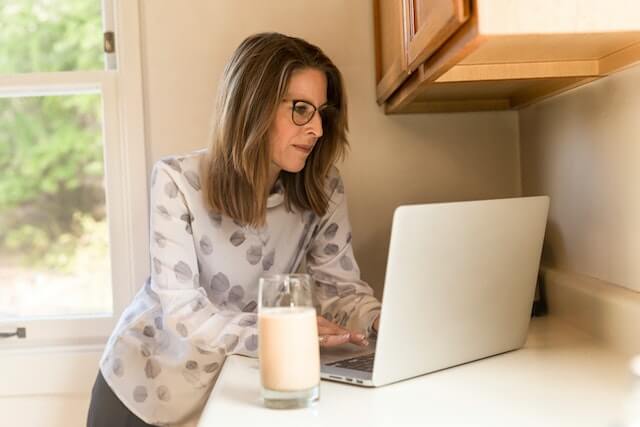Bone health in focus during awareness week
Bone Health Week takes place from 21 to 27 August. It aims to get Australians to think about their bone health and understand what they can do to make positive changes.
Know that by taking some simple actions, you can protect your bone health so you stay stronger for longer.
Find out more about the awareness week and tips for healthy bones in our latest post.
What’s Bone Health Week all about?
Healthy Bones Action Week, to give it its official title, is an annual event by Dairy Australia, the national body for the dairy industry.

Its key message is that there are three simple ways to take care of your bone health:
- Consume milk, cheese and yoghurt (or dairy alternatives) to increase your calcium intake
- Do weight-bearing exercises to strengthen your bones
- Help your body generate vitamin D from safe sun exposure
You can get involved with Bone Health Week by spreading the word about bone health on social media, tagging @australiandairy and #HealthyBonesActionWeek.
Or you could hold a healthy bones initiative at your workplace, within your friendship circle or in your community, explaining the importance of looking after your bones.
Why is bone health so important?
Looking after your bone health is important because by keeping your bones strong, you reduce the risk of aches, pains and fractures.
Strong bones also mean less chance of osteoporosis or brittle bones. This is when the bones weaken over a long period of time, becoming less dense, more fragile and more vulnerable to fractures.
Some people with osteoporosis may also have a hunched-over appearance. This happens when bones in the mid-section of the spine sustain fractures and compress. This makes it difficult for a person’s body weight to be held in the same way as before and can also cause height loss.
Around half of women and one-third of men over the age of 60 have osteoporosis. Women are more vulnerable to this condition, as their ovaries produce less oestrogen, which works to protect the bones, around menopausal age.
You may also have heard of the condition osteopenia. This is when you have lower-than-average bone density for your age but not low enough to be classed as osteoporosis. It does not necessarily lead to osteoporosis, and your doctor can advise on treatment for this condition.
What are the best foods for bone health?
As we’ve already seen, there are three key actions you can take to safeguard the health of your bones.
The first thing is to consume plenty of calcium-rich foods and drinks — you should be able to get the right amount from a healthy and balanced diet.

Calcium-rich products include:
- Milk, cheese, yoghurts and other dairy foods
- Green leafy vegetables like cabbage, okra and broccoli
- Nuts
- Bread
- Fish with edible bones like pilchards and sardines
- Soya beans
- Tofu
- Plant-based drinks fortified with calcium, e.g., soya drinks
What role does vitamin D play?
You also need vitamin D to help your body absorb calcium. While some foods do contain vitamin D, it’s hard to get all you need from your diet.
We actually get most of the vitamin D we need from being exposed to the sun — but safely.
You can do this by exposing unprotected skin on your face, arms and hands to the sun for around 10 to 15 minutes a day before 10 a.m. or after 3 p.m., from October to March. You can do this three to four times a week.
What kind of exercises do I need to do?
To safeguard your bone health, you need to practise these different types of exercises on a regular basis:
- Aerobic weight-bearing exercises, such as dancing, brisk walking, jogging or tennis
- Resistance training using weights, bands or machines
- Exercises that promote balance, posture and strength, such as tai chi or yoga
More tips for bone health
In addition, if you or a family member has developed a health condition related to weak bones like osteoporosis, you can wear an osteoporosis medical wristband.
Medical alert bracelets contain vital information about the wearer’s health status, enabling healthcare staff to give them the right treatment in the event of an emergency.
The best medical alert bracelets are made from silicone, a soft, flexible and comfortable material that’s hardwearing too.
One of the benefits of silicone wristbands is that you can have them customised with any information you like, including the wearer’s medical condition, medication and emergency contact details. You can also choose from a range of attractive colours. This customisability makes them a versatile and practical item for anyone with a condition that affects their health.
Start protecting your bone health today
It’s never too early or too late to improve your bone health — and Healthy Bones Action Week is your opportunity to introduce some positive changes to do this!
Start today by making a few changes to your diet or exercise regime or pledging to enjoy the sun safely to generate vitamin D production.
And if you or a loved one is living with the effects of a bone condition like osteoporosis, why not order a medical alert wristband from the Mediband collection? Knowing that you or your loved one will be treated appropriately in an emergency brings peace of mind — and that’s priceless!

